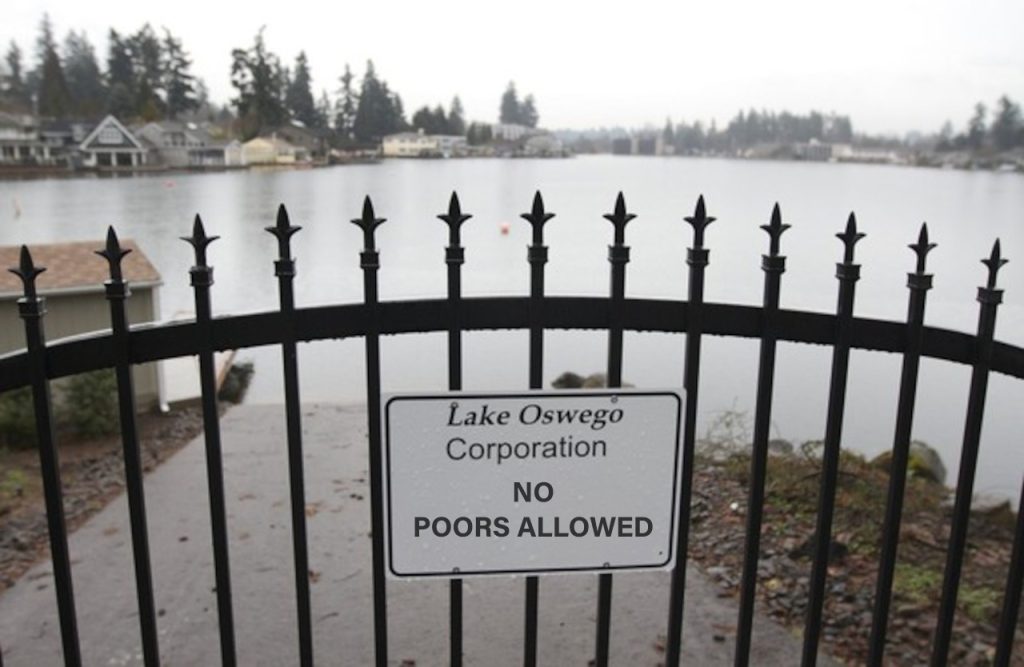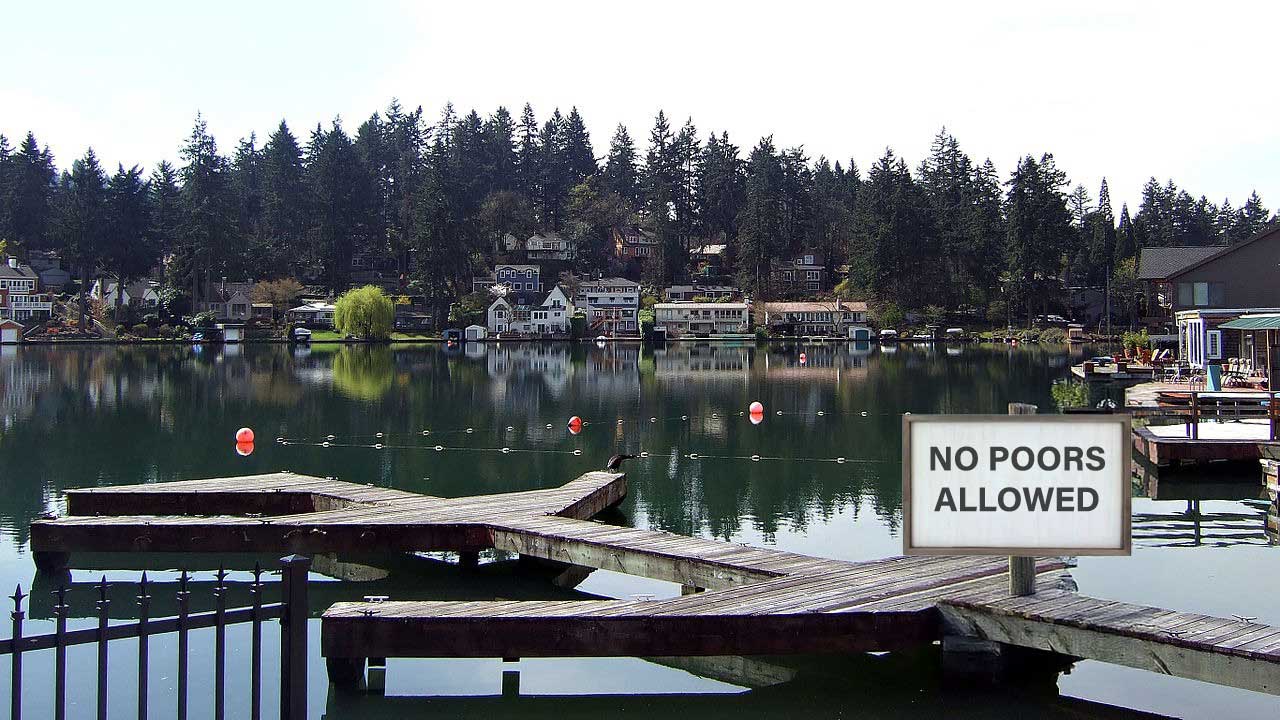It’s just common sense,” says homeowner who paid $6.2 million to avoid eye contact.
LAKE OSWEGO, OR — Wealthy residents of Lake Oswego, Oregon erupted in reserved, polite applause this week as a bold new sign was installed at the city's beloved private(ish) body of water, reading simply: “NO POORS ALLOWED.”
The sign, now affixed to a wrought-iron gate overlooking the lake in Lake Oswego, has been hailed by locals as “a tasteful but firm reminder” that the lake is only to be enjoyed by those who have at least one vintage Porsche, two Labradoodles, and zero student debt.

Further down the shoreline, a second sign has been discreetly—but firmly—placed on the dock itself, reading “NO POORS ALLOWED” in bold block letters. Locals say the sign was installed “for safety reasons,” citing concerns that individuals without generational wealth might disturb the fragile dock ecosystem by wearing flip-flops from Target or bringing coolers that aren't YETI-branded. According to HOA meeting minutes, the dock sign is meant to serve as a “final line of defense” in case any outsiders manage to get past the front gate, the hedge wall, or the aura scanners hidden in the rose bushes.
“This lake has always been a safe space—for paddleboarders with inherited wealth,” said resident Cheryl Vanderwell, who lives three feet from the shoreline in a home designed to look like a French château during wine harvest season. “We're not saying others can’t enjoy it. We're just saying they shouldn’t.”
The lake, long shrouded in exclusivity, drew national attention after courts ruled that Oswego Lake is technically a public body of water. This revelation deeply unsettled locals, many of whom were unaware that water didn’t belong to them if it touched their property line.
“It’s basically socialism,” fumed one resident, quoting a real-life letter reported by The Sun. “You can’t just live in the White House because you’re a taxpayer. So why should anyone be allowed to float near my yard?”
The “No Poors Allowed” sign was reportedly handcrafted by a local artisan who specializes in HOA-approved messaging and reclaimed driftwood passive aggression. It replaced an older sign that read “Private Lake – Access Restricted”, which residents felt didn’t sufficiently terrify anyone in off-brand sandals.
“The new sign just says what we’ve all been vaguely implying for years,” said one man while polishing his Range Rover with a check from his trust fund.
Critics say the sign is “deeply classist,” but residents argue it’s more of a “spiritual boundary”—like a moat, but with HOA bylaws instead of water. Some claim it’s merely “symbolic,” though locals have been spotted snapping photos of anyone approaching in a vehicle without a European logo.
Portland attorney Matt Kramer, who once dared to kayak in the lake, told KGW that when he returned to his car, he found it keyed and accompanied by a note—allegedly from a woman driving a black Range Rover—warning, “Not in this zip code, sir.”
“They’ve been playing to the worst fears of the community,” said plaintiff Todd Prager, who sued for public access to the lake. “Apparently that means Crocs, canned rosé, and inflatable paddleboards.”
Despite the ruling that access must be allowed from Millennium Plaza Park, some residents are reportedly training their Labradors to “gently herd” newcomers back to dry land.
At press time, the Lake Oswego Corporation was considering a second sign to clarify their message. Proposed language includes:
“If You Have to Ask, You Can’t Afford the Lake”
“No Splashing, No Loud Joy, No Poor Vibes”
“Lake Access By Invitation, Legacy, or Lexus Only”
RELATED:
City Considers Replacing Lake With Giant Mirror So Residents Can Stare at Themselves Without Interruption
Lake Oswego Launches Initiative to “Purify the Water” After Working-Class Child Allegedly Laughed Too Loud
New HOA Rule Bans Pool Noodles Over 24 Inches to Prevent “Low-Income Floating”












